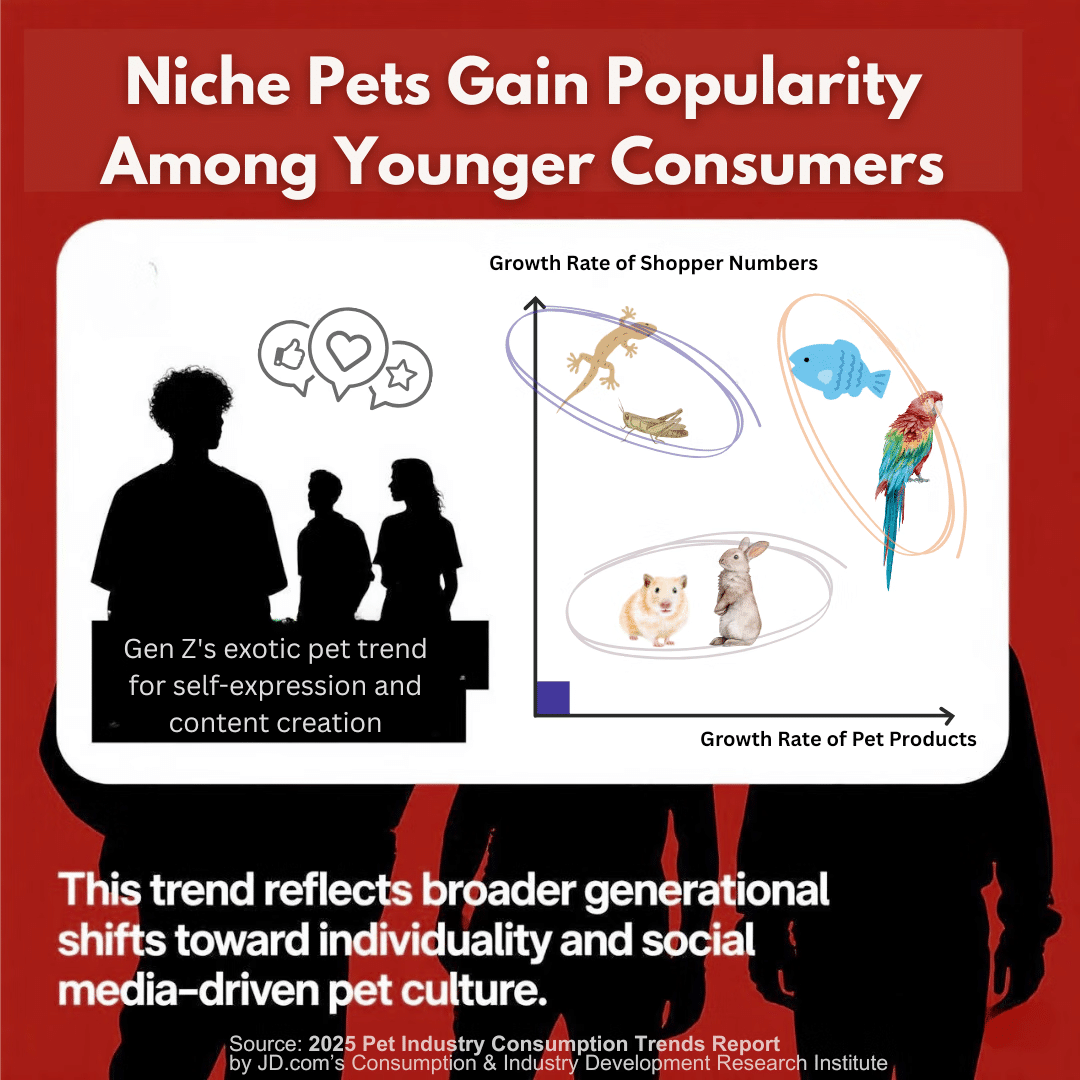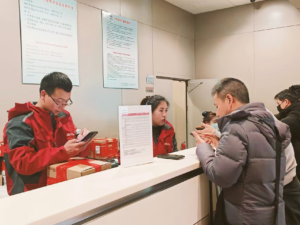Aug 26, 2021|
JD.ID Explores Omni-channel Innovation as Indonesia Warms to E-Commerce
by Kelly Dawson
COVID-19 has hastened the digitalization of Indonesia’s commerce industry—but unique cultural factors have underscored the importance of an omni-channel approach in a country where offline shopping remains the dominant shopping mode. JD.com’s joint e-commerce venture JD.ID is leading that development, with technology that streamlines both the customer and vendor experience while considering Indonesian cultural preferences.
“Indonesia is unique in the way people shop,” said Eyvette Tung, JD.ID’s Head of Offline Business. “It’s a service culture. Indonesian shoppers are not independent, and prefer not to be. You see in other places like China that everyone is going online so quickly, but people in Indonesia want that interaction, and they like to be served. That’s a big reason we’re ramping up efforts offline, even as we build out our online infrastructure.”
In a country where many have maids, drivers and nannies, people will often ask their helpers to do their shopping for them. In scenarios in which more discernment is needed, customers may travel to the store and then seek out staff for advice and guidance on the best choice. Online repairs and refunds have historically been a hassle, and many believe that in-store service is simply faster and more reliable.
Additionally, shopping at a physical mall is considered to be a pleasurable activity, with many choosing to shop in their free time to escape the heat and humidity, Tung said. Drivers in Jakarta are likely to pass a shopping center every 5-10 kilometers, an indication of how deeply entrenched offline shopping is in the culture and infrastructure.
Impact of the pandemic
However, when the pandemic accelerated in 2020, circumstances necessitated that many shift their shopping behaviors online, or to a hybrid omni-channel model. The country’s e-commerce gross merchandise value grew nearly 65% to US $37 billion in 2020, according to a study by management consulting firm Redseer. Consultancy PWC Indonesia’s Global Consumer Insights Survey 2020 reported that 69% of respondents indicated that they were buying more groceries online following COVID-19 restrictions, as compared to before the pandemic, and 57% said they would likely continue shopping online even after the pandemic.
This represented an enormous opportunity—but many vendors and shoppers were caught off guard, Tung said.
JD.ID operates a hybrid first-party and third-party business platform. While its first-party business already ensures swift same or next-day delivery of a wide-ranging inventory thanks to an efficient, reliable in-house logistics network delivering from JD.ID’s warehouses or drop stations, many customers expect on-demand delivery for groceries and fresh produce—which requires a different level of speed and efficiency made possible by JD.ID’s partnership with third-party on-demand delivery service Gojek.
However, in the early days of the pandemic, JD.ID faced a major problem shared by all Indonesian e-commerce platforms. At the time, the platform limited one store to one location, meaning that if the Carrefour supermarket chain, for example, wanted to open a store online, it could only list one location—which might be hours away from the customer, depending on their location and traffic conditions. In some cases, customers might not receive their deliveries until the next day or later.
To get around this limitation, Carrefour could open multiple stores on the platform, but each location would need to assign staff to manage that store on the platform, updating inventory daily and handling customer service requests separately for every location. Even then, customers shopping on the platform would not be able to easily discern which of the multiple locations was closest to them.
With this system, both the customer and the vendors faced enormous inconvenience.
Nearby Shops
In response, JD.ID launched the “Nearby Shops” feature on its platform in Nov. 2020—and remains the only Indonesian e-commerce platform with this feature today. Now, a vendor can open one store on the platform with many separate locations stored within that store, giving customers the option to choose the location closest to them by distance, which is clearly displayed and easily searchable. Additionally, customers can check inventory to ensure that the chosen location has their desired items. With the new system, JD.ID shoppers who opt to use the “Nearby Shops” function can receive deliveries in as fast as 30 minutes, or pick up on site at the closest location. Micro, small- and medium-sized businesses can also benefit by appearing in the list of locations closest to customers.
Additionally, vendors will be able to manage one customer service channel for all the locations under their official store, cutting hassle and streamlining the process.
“We’re the first e-commerce platform in Indonesia to offer the ‘Nearby Shops’ feature and therefore that level of convenience and speed,” Tung said. “We wanted to consider what the benefits could be for both business owners and customers. For Indonesia, anything digital is still a very new concept, so even though we have a lot of younger customers who are more savvy, the majority of people, whether customers or vendors, are still adjusting to these new developments.”
For the time being, JD.ID’s Nearby Shops feature is limited to Jakarta, but the company is preparing to expand outside the city. Many businesses outside of Jakarta have already contacted JD.ID in hopes of participating, so the demand is clearly waiting to be met, Tung said. “Outside of Jakarta, our delivery times are already among the best in the country, because we manage our own logistics. But we think in the future, we’ll also be able to expand the Nearby Shops feature to cover the entire country, offering an even better customer experience for people outside of Jakarta.”
Offline-online ecosystem
While the country’s e-commerce boom is heartening, more than 90% of all commerce in Indonesia was still offline in 2020, according to consultancy PWC Indonesia’s Global Consumer Insights Survey 2020. Many shoppers still opt to make less frequent, higher-value purchases in-store, preferring to test products and receive guidance from staff before splashing out on bigger items. Among reasons listed by respondents for preferring to shop offline were: proximity to physical stores, assured availability of items, and the pleasure of what some called a “fun pastime.”
In this context, JD.ID has experienced a similar trajectory to its parent company JD.com in China, in which its push to digitalize has been paired with a realization that offline will continue to matter. Even before the pandemic, JD.ID was aggressively developing its omni-channel services, but COVID-19 has only underscored the importance of online-offline integration, Tung said.
Even now, new shopping malls are popping up all over Jakarta, she noted.
“It’s only going to grow, so it’s a very exciting time,” she said. “Omni-channel will definitely continue to be a big part of business in Indonesia. Our team is constantly thinking about how we can offer additional services to create a better customer journey, and how to create more fluency in the way customers shop. It’s exciting to help customers find new and better ways to get what they need.”
As the country gradually settles into the new post-COVID normal, people will continue to shop both online and offline, Tung said.
“As that happens, it’s our responsibility to create an ecosystem in which offline and online complement each other, not compete with each other.”





 This Harbin tourism boom has also spurred a surge in sales of winter apparel. JD.com’s data indicates a rapid growth in the sales of warm clothing items such as down jackets, snow boots, and thermal underwear between January 1st and 7th. The sales growth is especially pronounced in southern provinces and cities such as Jiangsu, Zhejiang, Guangdong, Sichuan, and Shanghai. Notably, tall snow boots registered a 206% year-on-year increase in transactions, while padded cotton caps and thickened long down jackets soared by 158% and 134%, respectively. Beyond clothing, travel gear has also seen a considerable uptick, with a 98% year-on-year growth in transactions for large suitcases and travel backpacks in these southern regions.
This Harbin tourism boom has also spurred a surge in sales of winter apparel. JD.com’s data indicates a rapid growth in the sales of warm clothing items such as down jackets, snow boots, and thermal underwear between January 1st and 7th. The sales growth is especially pronounced in southern provinces and cities such as Jiangsu, Zhejiang, Guangdong, Sichuan, and Shanghai. Notably, tall snow boots registered a 206% year-on-year increase in transactions, while padded cotton caps and thickened long down jackets soared by 158% and 134%, respectively. Beyond clothing, travel gear has also seen a considerable uptick, with a 98% year-on-year growth in transactions for large suitcases and travel backpacks in these southern regions. JD Health H1 FY21 Earnings: Users Growth, Cold Chain Medicine Delivery and Digital Transformation
JD Health H1 FY21 Earnings: Users Growth, Cold Chain Medicine Delivery and Digital Transformation



